Aug
8
2013
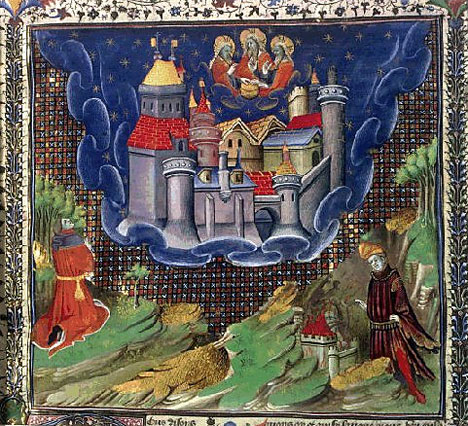
“But now they desire a better, that is, a heavenly country. Therefore God is not ashamed to be called their God, for He has prepared a city for them.” (Hebrews 11:16)
The narrative of the Bible is fairly linear until we get to the kings. But once we hit the prophets the Scriptures turn into a box of puzzle pieces. The literature of the kings used Mosaic symbols to a certain degree but the prophets took all the concrete things we learned from the priests and kings and used them to make amazing promises that never quite materialized. Or did they?
Continue reading
3 comments | tags: AD70, Millennium, New Jerusalem, Postmillennialism, Revelation 20 | posted in Bible Matrix, Biblical Theology, The Last Days
Aug
7
2013
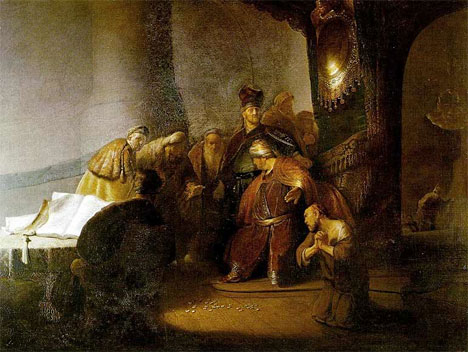
Covenant Structure in Zechariah 11
“The meek will eventually inherit the earth but the wicked will always have to buy it.”
Reading the book of Zechariah, like most Bible prophecies, is like tuning in to Season 3 of any good TV series without watching Seasons 1 and 2. Our problem today is not that we haven’t actually read the books of Moses (well, I hope we have) but that we haven’t been taught to read them into the prophets and the New Testament. We treat them like we’ve now switched channels, or shows, and the authors are starting with a blank canvas! However, the canvas isn’t blank. The prophets were God’s repo men, and their messages were all framed in the context of the Covenant contract. What amazes me is how inventive the prophets are (or the Spirit is) in coming up with something new and surprising using the patterns laid down in Moses.
Continue reading
Comments Off | tags: Acts, Esau, Herod, Judas, Literary Structure, Matthew, Minor Prophets, Passover, Pharaoh, Zechariah | posted in Bible Matrix, Biblical Theology
Aug
6
2013
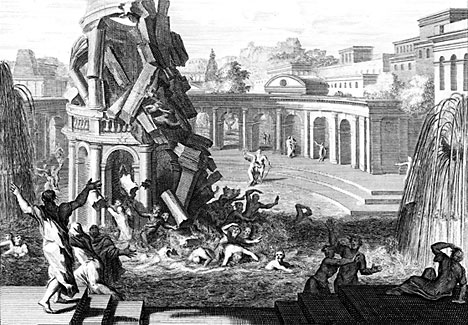 You Shall Likewise Perish
You Shall Likewise Perish
Peter Leithart has posted a response from Joe Rigney concerning the meaning of Luke 12-13. We had a look at the structure of these chapters here recently (See 666 in the Gospel of Luke), so I thought it would be interesting to see how these two approaches “speak to each other.”
Continue reading
Comments Off | tags: AD70, Joe Rigney, Literary Structure, Luke, Peter Leithart | posted in Bible Matrix, Biblical Theology, Quotes, The Last Days
Aug
2
2013
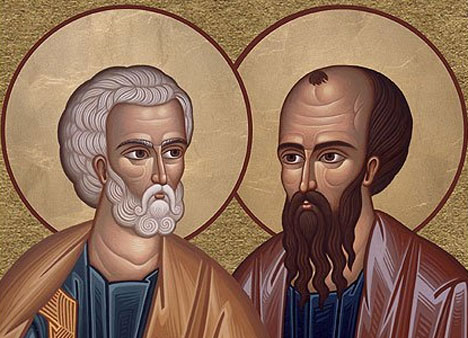
Paul’s Leviticus
“This is where he picks up the fivefold Covenant structure and turns ‘the right hand of fellowship’ into a set of holy knuckledusters.”
This post has been refined by fire and included in a new book, The Shape of Galatians.
Continue reading
Comments Off | tags: Circumcision, Food laws, Galatians, Hebrews, Leviticus, Literary Structure, Moses, Paul | posted in Bible Matrix, Biblical Theology, Ethics, The Last Days
Jul
31
2013
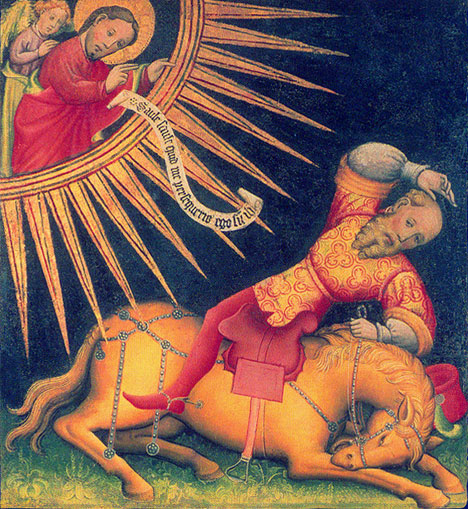 Paul’s Exodus
Paul’s Exodus
To highlight what Paul is doing in the shape of his letter to the Galatians, I’ve updated the subtitle of yesterday’s post to Paul’s Genesis. The second cycle is thus Paul’s wilderness journey, concerning the “veil” of unknowing that remained between Paul and the apostles, and also between Paul and the churches in Judea. The “packaging” of his argument in the structure of the history of Israel is interesting. Like the birth of Israel as a nation under Moses, Paul’s ministry was not a product of the earlier apostles: his commission came directly from Christ. There is also the undertone that he has re-enacted the pattern of “prophetic” training in the wilderness, which was always a preparation of an “Israel” to minister to the nations.
Continue reading
Comments Off | tags: Circumcision, Galatians, Paul | posted in Bible Matrix, Biblical Theology
Jul
29
2013

Paul’s Genesis
It’s time to put another epistle under the matrix-scope!
Continue reading
Comments Off | tags: Covenant curse, Covenant Theology, Feasts, Galatians, Literary Structure, Paul | posted in Bible Matrix, Biblical Theology, The Last Days
Jul
24
2013
Most of the feedback I get is criticism, which is helpful for me — so it’s great to hear from someone who has been helped in some way!
From Pamela in the upper midwest, USA:
Continue reading
1 comment | tags: Baptism, Postmillennialism | posted in Bible Matrix, Biblical Theology, Quotes
Jul
19
2013

“So, perhaps the best conclusion is that John was not looking for encouragement, but giving encouragement. In effect, he was saying, ‘Get on with it, cousin!’”
The nature of the texts of the Bible is just like the spoken words God gave to Adam. A great deal remained unsaid, and Adam was to “read between the lines” based upon God’s revealed character as his Father. However, Adam let somebody else fill in the gaps with some conflicting information about God’s character, somebody who was very likely jealous of Adam’s commission and had an ax to grind (and even here, we are left to fill in the gaps as to Satan’s motive based upon later scriptures!)
Continue reading
7 comments | tags: Albert Garlando, Bible Matrix III, John the Baptist, Literary Structure, Luke, Tabernacle | posted in Bible Matrix, Biblical Theology, Q&A
Jul
16
2013
 “When Moses slew the Egyptian, he was doing the will of God but not with the power of God.”
“When Moses slew the Egyptian, he was doing the will of God but not with the power of God.”
Numbers 12:3 says that Moses was the meekest man “on the face of the ground [adamah].”
Psalm 37:11 says the meek will inherit the Land [eretz] and delight in abundant prosperity.
Isaiah 11:4 says that
with righteousness [God] shall judge the poor,
and decide with equity for the meek of the Land;
and he shall strike the Land with the rod of his mouth,
and with the breath of his lips she shall kill the wicked.
Firstly, what is meekness? And secondly, why is it connected to “face of the ground” (Adam), or Land?
This post has been slain and resurrected for inclusion in my 2015 book of essays, Inquietude.
Continue reading
Comments Off | tags: Ascension, Firstfruits, Genesis, Herod, Isaiah, James Jordan, Matthew, Moses, Pharaoh, Tabernacle | posted in Bible Matrix, Biblical Theology, Christian Life, Ethics, Quotes, The Last Days
Jul
9
2013

And he was teaching them and saying to them, “Is it not written, ‘My house shall be called a house of prayer for all the nations’? But you have made it a den of robbers.” (Mark 11:17)
The same word is used of the men crucified alongside Jesus in Mark 15:27.
And with him they crucified two robbers, one on his right and one on his left.
Is this merely coincidental, or is there something deeper going on? Is there a link between the “white collar” Temple crimes and the “blue collar” criminals?
Continue reading
3 comments | tags: Atonement, Crucifixion, Genesis, Mark, Temple, Ten Commandments | posted in Bible Matrix, Biblical Theology


































